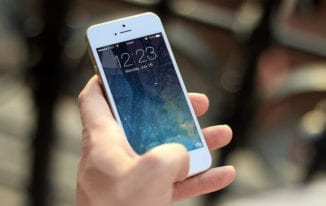
Speed makes the world go round. From the solar system to terrestrial traffic, speed is a constant component of life, the universe, and beyond. Computing and technology is no different. One of the primary metrics we use for the measurement of progress in technology is speed. Thus, processing power of a computer or the download bandwidth of the Internet are features which consumers demand continuous improvements in, a demand that leading tech firms are extremely proficient in meeting.
VPNs are no different. The quality and strength of a VPN service is usually evaluated by its speed, the other important feature being security. You can have the most secure VPN in the world, but what good is it if works slower than your grandma’s dial-up connection from the 90s?
No good. So I am going to talk about 7 factors that determine your VPN speed. While you’re at it, you can check out the list of fastest VPN providers that I compiled after testing on various servers.
1) The speed from your ISPVPN services, at their best, can only provide an Internet speed as fast as your allocated bandwidth from your ISP. In fact, even the fastest VPN services reduce your base speed to some extent.
So, you need to have a fast Internet connection in the first place to get good speeds with your VPN as well.
2) Server LoadThe number of users connected to a given VPN server has a strong impact on the speed you are going to get. If the server is overcrowded beyond capacity, the VPN can slow your Internet down to a crawl.
Some VPN clients will display information regarding the available bandwidth on a server and the percentage capacity that has been filled by users. You should use a different server, preferably one with fewer servers and smaller load to receive better speeds.
3) Server LocationThe location of the VPN server you are connected to also plays a critical role in the server speeds you are going to get. As a rule, the closer the server is to your physical location, the better will be your speed and latency. If you are connected to a remotely located server, your data packets would have to travel a longer route before they can communicate with the website or service you are trying to access.
The VPN speed varies from server to server. As evidenced by these VPN speed test result, some VPNs are optimized to work best with certain server locations. Many of top VPN providers automatically choose the fastest server depending on your existing location. However, you can try out different servers to find one that offers the best speed for you.
4) Strength of EncryptionThe level of encryption your VPN is using for your traffic also has an impact on your connection speed. For instance, if the VPN is operating on 128-bit encryption, the speed will generally be faster than what you can get on 256-bit encryption.
As such, there is a trade-of between security and speed. Stronger encryption introduce overheads that inevitably slow down the connection, while weak encryption does not weigh down VPN speed as much. I wouldn’t recommend compromising security just to get a small speed boost, however, but the point is, encryption is one of the factors that affects speed.
5) VPN ProtocolsVPN services function using different tunneling protocols. PPTP was the earliest protocol that made VPN tunneling possible. It is still believed to be the fastest of the protocols. However, it is also the least secure and none of the reputed VPN brands recommend using PPTP to establish VPN connection.
The most advanced protocol that is in use today is OpenVPN. This protocol can work over either TCP or UDP, the latter usually giving better results in terms of speed. Currently, OpenVPN offers the best balance of speed and security.
However, if you are willing to sacrifice some extent of security for greater speed, you can try experimenting with different protocols like SSTP, L2TP/IPSec, IKEv2, and PPTP.
6) Network TypeThe way you are connected to the Internet has considerable influence on your speed. If you are on a Wi-Fi, the speeds are comparatively lower than the speeds you typically get through a wired Ethernet connection. The difference between wired and Wi-Fi Internet speed becomes more pronounced when you have a considerably fast connection in excess of 50mbps.
So if you are frustrated with slow VPN speeds and you are on a Wi-Fi, try hooking your device directly to your router. In some cases, you can even get twice as fast speeds!
7) Routing AlgorithmsEvery VPN service uses some form of algorithm that controls how your data travels from server to server on the Internet. A VPN with a poor server infrastructure will lead to considerable overhead, which causes slow speeds. However, veteran VPN services having consolidated infrastructures can route your data much more efficiently through the network.
This is why you should purchase reliable VPN providers like PureVPN, NordVPN, or ExpressVPN, as these have a well-developed network running on advanced routing algorithms.
Summing UpVPN speeds are affected by various different factors, some of which are uncontrollable by the user, while others can actually be controlled. If you are unable to get the speeds that you are aiming for, then it might be time to upgrade your Internet connection or get a faster VPN service.
Related Topics Best VPN for Tor Speed Up your VPN Mistakes to Avoid when Buying Proxies Best Web Hosting PIN Security Basics Internet Security BasicsThe post 7 Factors Affecting VPN Speed appeared first on Nigeria Technology Guide.

It happens to the best of us. One day you’re using your trusty iPhone to crush countless candies, and the next it has the same functionalities as a brick. You don’t know why it’s not working now, but you want it fixed as soon as possible. However, the good news is that there are ways of fixing it. Here are a few tips on fixing the most common iPhone problems.
Calls Aren’t Coming In:If you have your phone with you almost all day and still see a lengthy list of lost calls, your iPhone might not be alerting you when you have a new call come in. If this is the case, don’t panic. Often the simplest solutions are the most overlooked.
Some reasons that your phone may not be ringing is simply because the sound is on mute, the phone itself is on “do not disturb,” or the phone is blocking those numbers. All of these features can be shut off in the settings.
If that didn’t work, then the phone’s ringtone might have corrupted and it’s time to get a new one. Finally, if it’s not a software problem you might have a broken speaker that needs replacing at your local Apple store. For more information, the folks at lifewire.com explain in detail how to fix these issues.
Phone Won’t Charge:Phones are pretty cool, but only when they’re charged. So it’s understandable that your phone not charging you might be a bit anxious. If your iPhone isn’t charging, you will first want to make sure that the phone is the problem and it’s not the power outlet or the charger that doesn’t work.
First, try plugging your phone in a different USB slot or power outlet. If it still doesn’t charge then check your charger to make sure it is Apple supported and not visibly damaged. If neither of these issues is apparent, it may be time to invest in a new charger. If nothing else works then your iPhone may be damaged. Apple goes over in detail the steps to fixing many of these issues, and how to contact a service agent if nothing else works.
Touchscreen Doesn’t Respond:The only thing worse than not being able to use a phone is being able to see what you can’t use. This is what makes a nonresponsive touchscreen so aggravating. Luckily there is a way to deal with this. In every iPhone model, there is a way to force the phone to turn off and on again. This varies based on your iPhone model, so it’s important to follow the directions given by Apple on their website that will show you how to force your phone to restart.
If All Else Fails:Sometimes our best just isn’t good enough. If the problems above aren’t fixed with these tips, or they are only fixed temporarily, it may be time to restart your phone entirely. This will delete everything on your phone and bring it back to its factory setting, so make sure everything you want to keep (contacts, pictures, music, etc.) is backed up. T-Mobile explains how you can reset your iPhone to its factory state. Once that’s done your phone should function like it’s brand new again.
If your phone truly is broken and cannot be fixed, then it may be time to say goodbye and purchase a new iPhone. If that is the case, then this may be a sign it’s time to upgrade to an iPhone with more storage space and faster performance, like the iPhone 8. And if you do need to purchase a new phone consider purchasing from T-Mobile, who offers not only some of the best deals on iPhones, but is also the fastest mobile network.
There you have it, some of the most common iPhone issues and how to easily fix them. If the issue you are having with your phone isn’t listed here, numerous resources can be found simply by googling “[iPhone problem] + [iPhone model]”, or by setting up an appointment at an Apple Store.
Read More:
How to Prevent Random Shutdowns on your iPhone or iPad? 6 things to do immediately your Phone is Lost or Stolen Reasons why Buying an Unlocked Phone is the right choiceThe post iPhone Doesn’t Work? 4 Top Tips to Revive It appeared first on Nigeria Technology Guide.
